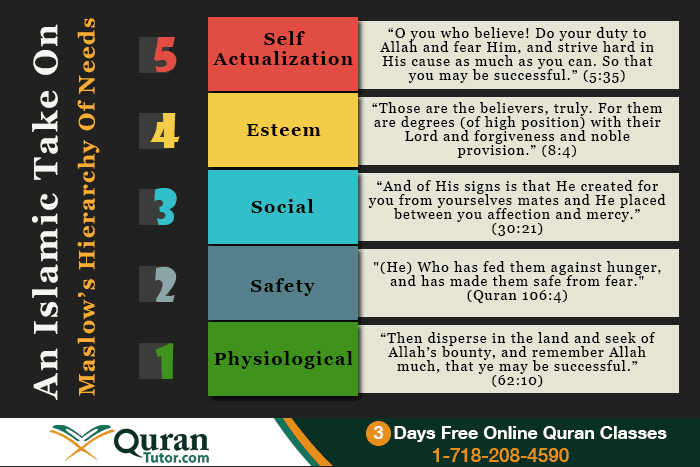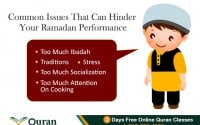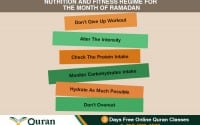An Islamic Take On Maslow’s Hierarchy Of Needs
At present psychology is one of the most research fields where the psychologist are researching on the way a human mind works and what kind of stimuli generate what kind of response from the brain. In this domain, the factors that motivate a person in doing something are one of the most debated and researched topics. One theory that stands on the pinnacle of all the psychological research pertaining to motivating people is Maslow’s theory of motivation.

Maslow’s theory of motivation or otherwise known as Maslow’s hierarchy of needs is the theory in which Abraham Maslow gives five factors in hierarchy that are the basic human needs and the fulfillment of which leads to a person being motivated or in other words happy and at peace. The lines below discuss the Maslow’s hierarchy of needs from an Islamic perspective.
Physiological Needs:
The first category of needs which Maslow puts at the bottom of the hierarchy is of the physiological needs. The physiological needs comprise of all the needs that are related to basic human biological needs. In these needs there is food, there is water, there is sleeping, breathing, sexual intercourse and so on. These are the primal human needs and without the fulfillment of these basic and inherent needs, one cannot achieve any kind of happiness or success. Regarding them, Allah Almighty says in Quran:

“And it is He who has made the night for you as clothing and sleep (a means for) rest and has made the day of resurrection.” (25:47)
From the ayah it is clear that Allah Almighty is aware of the basic human needs and in order to fulfill those needs He has provided the resources. Therefore, whatever is the human basic need pertaining to biology, there is a resource available for their fulfillment.
Furthermore, Allah Almighty says:

“Also, And when the prayer is ended, then disperse in the land and seek of Allah’s bounty, and remember Allah much, that ye may be successful.” (62:10)
From the ayah it is clear that it is Allah who fulfills these needs of a person, therefore, one must ask of these needs from Allah and no one else.
Safety Need:
The second level of need that a human is concerned about is the need for safety. Everyone of us wants safety for ourselves as well as for our future generation. In this regard, we try to do everything possible to ensure that there is no threat to our life and belongings. Islam in this regard has given a law in the form of Sharia that protects and keeps the life and property of a person safe. Therefore, Islam brings all the guidelines and instructions that are required by a society to make sure that the safety needs of its members are fulfilled.
Social Needs:
Allah Almighty has created man as a social animal. Therefore, along with other needs there are the social needs of a human as well where he or she wants to interact with other people, loves them and wants to be loved and taken care of. In Quran, Allah Almighty says:

“And of His signs is that He created for you from yourselves mates that you may find tranquility in them; and He placed between you affection and mercy. Indeed in that are signs for a people who have thought.” (30:21)
Although this ayah speaks of the love between a husband and wife, however, those who think and ponder over the signs of Allah are aware of the fact that humans also share a bond of love and this bond of love has been present among them because Allah put it there. Therefore, a Muslim must realize that humans are to love and support each other especially when they live in the form of a group. It is as natural as it gets.
Esteem Need:
Self-esteem is another need of humans. Although it is not one of the common needs because primarily most of the people spend their lives in the pursuit of the first three needs. However, there are people who rise to the levels where they want respect and want their esteem to be fulfilled. As Allah Almighty says in Quran:

“Those are the believers, truly. For them are degrees (of high position) with their Lord and forgiveness and noble provision.” (8:4)
From this ayah of Quran it is clear that it is Allah Almighty who assigns degrees or positions that sooth and satisfy the self-esteem need of a person. Therefore, if one is to seek solace for self esteem or wants to satiate it, then one needs to believe in Him and ask Him for all the help and assistance in this regard. therefore, whenever one feels low in self-esteem or does not feel it being fulfilled, he or she needs to turn towards Allah and seek His assistance.
Self-Actualization Need:
When all the needs of a human are fulfilled the next level of needs is the self-actualization where a person tries to find about who he or she is and how they can achieve their full potential. They try to find out what are the capabilities they are born with, what is in their power, how can they do things and what should be expected of them. It is at this level of needs that a person searches for answers that are for the absolute questions related to existence of human kind. Allah Almighty says in Quran:

“O you who believe! Do your duty to Allah and fear Him. Seek the means of approach to Him, and strive hard in His cause as much as you can. So that you may be successful.” (5:35)
If being successful means knowing who you truly are and what you need to do to fulfill your true self, then the way to it is by walking in the way of Allah. The more a person moves in His way, the more he or she gets to actualize their self.
Conclusion:
In a nutshell, no matter wherever you are in the hierarchy of needs, all your needs are fulfilled by Allah Almighty. Therefore, in addition to working as humanly possible for fulfillment of those needs, a person needs to ask assistance and blessings of Allah Almighty so that he or she could have the needs fulfilled in the best possible manner.









